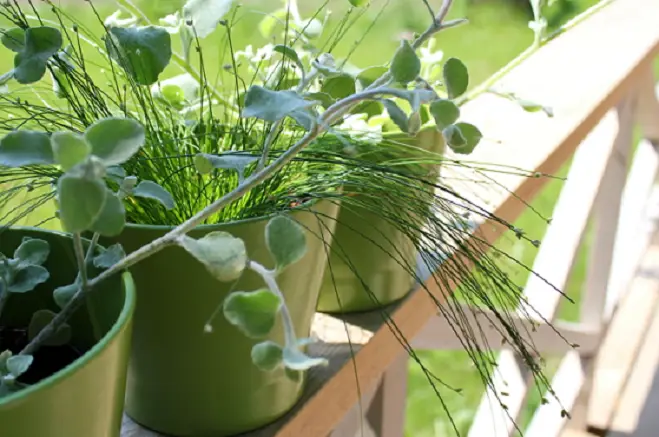Written by Mike Podlesny
Just because you lack large amounts of space does not mean that you cannot grow a lot of the fresh fruits vegetables and herbs you consume. As long as you have an area that receives at least 4 hours of sunlight daily, is easy for you to water, you should be good to go. Here are a few tips to help you get great results with small space gardening:
GROW UP
One of the best tips for gardeners that lack space is to grow vertically. This is just as true in the fall as it is in the summer. In the summer months you can easily use a trellis to grow vining plants that yield plenty of fruits and veggies. In the fall, while there are not too many vining plants that grow in cooler temps, you can easily build a few levels of stairs (or purchase such a structure), and place your potted plants on them. Herbs grow great in this type of growing environment. Google “vertical planting wall” for some really cool ideas.
GO DWARF
Apartments, condos and smaller living spaces are great for dwarf fruiting trees. Many types of trees grow great in large containers and can be moved inside when the temps get too cold outside. There are columnar apple trees and dwarf lemon that fit this description. Most of these trees can be purchased for under $30.
WINDOW BOX GARDEN
Maybe you do not have a balcony. Consider a window box. A window box, is simply a box about 12 inches deep and the length of your window. You would attach it to your property just under the window by either screwing the box to the building itself, or using hangers so it hands from the window ledge. These are great because you can grow just about anything in them. Strawberries, lettuce, spinach and herbs all make for excellent choices for window box gardens.
UTILIZE RAILINGS
Does your balcony have railings? Then by all means attach some GrowersHouse.com” rel=”noopener” target=”_blank”>garden boxes to them also. They are unused space with plenty of airflow around them, and if you get plenty of sun, are perfect locations to grow a lot great tasting fruits and veggies.
Regardless of which option you choose, make sure you use a good potting soil that is equal parts peat/coir and perlite and double the amount of compost. Also be sure to feed your plants once a week with compost tea or a good organic fertilizer to make sure they are well fed and have the nutrients they need to grow and thrive in a confined space.
About the Author

Mike Podlesny is the author of the book Vegetable Gardening for the Average Person.



Good stuff as always, I’m working on getting my garden going, but it’s too darn hot in Florida and my balcony get 6+ hours of sun. Should I consider shade cloth or something like that to keep the plants from getting cooked in the sun?
Hi Pierce, Yes, short of moving the plants around, shade cloth works well, cuts down on cooking the leaves. I also found that mesh bird nets are also needed for balcony gardens, keeps birds and some of the pests away. Best of luck on your balcony garden.